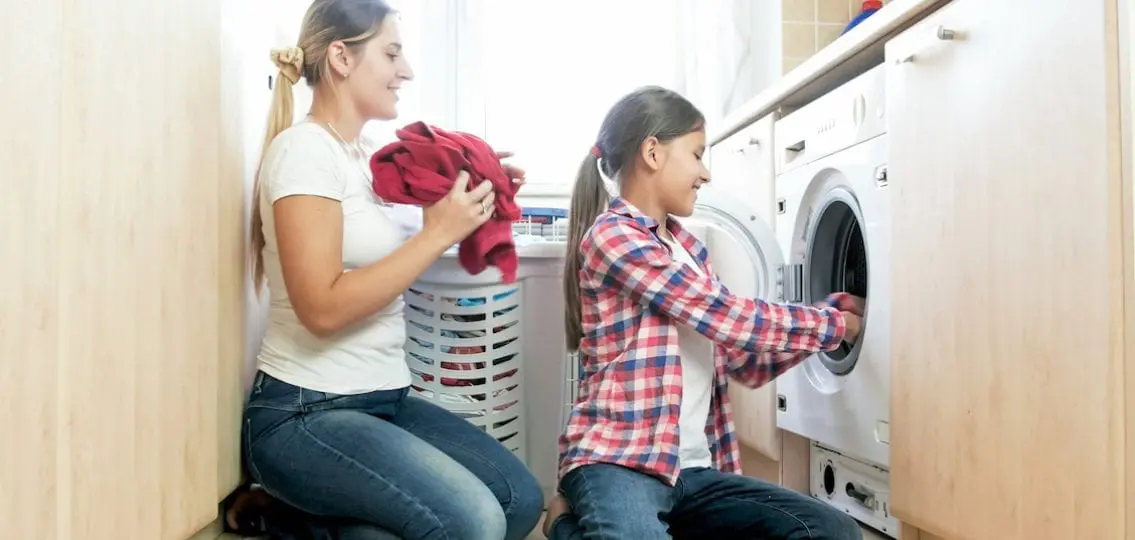The healthiest word missing from your teen’s vocabulary is “No.” Well, it’s not missing; it’s just misused.

And no, I’m not talking about saying “no” to drugs, alcohol, or other peer-pressure charged activities, although that’s important. I’m talking about saying “no” to over-commitment, which leads to an over-scheduled teen.
I’m talking about saying “No” to homework after midnight. Or “no” to taking too many challenging classes. “No” to signing up for more than one sport or activity at a time. “No” to skipping meals, and going to school sick to keep up with academics. It’s easy for us to say this, as parents who want what’s best for them, but they’re the ones feeling the pressure. Here’s how we can help them.
4 Ways to Encourage Saying No
1. Identify when they really don’t want to do something—and why.
If you’ve met a teenager, like ever, you know the typical non-verbal cues they use when they don’t want to do something. Those grunts, groans, sighs, and eye-rolls may be clues that they need help saying no to something, if no is an option.
Let’s say your teenager is enrolled in a few Advanced Placement classes, taking part in several after-school activities, and has an after-school job. Then, a well-meaning adviser recommends they take on a community service project, which will of course “look good” on their college applications. Many teens will say yes, because they are worried about getting into college, or because they don’t want to disappoint a trusted adult.
In this situation, it can be helpful to vocalize what you are observing, rather than to give an opinion. You could say, “You seem reluctant to take this on. Is this something you really feel like doing?” If you believe they are over-extending themselves, encourage and validate their right—and perhaps their wisdom—to say no.
2. Educate teens on the consequences of stress.
Teach your teen about the connection between over-commitment and mental health. Neil Brown, a psychotherapist and host of the “Healthy Family Connections” podcast, says that over-committed teens don’t learn about who they are and what they really want. In his work with teens and families on stress management, he distinguishes between “self-valuing” choices and “self-destructive” choices.
Brown explains, “Chronic stress is a very serious factor in illness, disease, and mental health. They are never quite ‘there’ no matter how hard they go. They feel only as good as the next thing they do.”
Stress can be a factor in teen depression, which is on the rise. It’s important that teens understand this connection when evaluating whether an activity is producing an unhealthy level of stress.
3. Confront the reasons behind over-commitment.
“Some kids just want to gobble everything right up,” says Brown. “They think, ‘I can do mock trial and be on student government, and I have to be on the soccer team, of course,’ and it becomes hard to think that everything’s not wonderful and urgent.”
He encourages parents to keep their antennae up. If your kid seems seriously stressed out, start by asking, “Why is that? Is my kid trying to fight off unworthiness through overachievement?” Sometimes teens feel they don’t have “permission” to say no, or worry they will be missing out on a great opportunity if they decline to participate.
Brown believes staying chronically busy for a teen is like workaholism or addictive behavior. He encourages parents to respect and appreciate teens for their accomplishments, but says, “We want them to know they are special and important for who they are, not what they do.”
4. Teach them to swap a “no” for a “yes.”
Brown also encourages parents and supporters of teens to teach specific strategies to combat the anxiety of over-commitment. Some that he teaches to his patients include breathing and calming techniques, changing negative thought patterns, and understanding how thinking affects feelings.
He also encourages families to create a family culture through game nights, meal planning and cooking, and other bonding activities.
Finally, Brown encourages teens to look at it not as saying no, but as “saying yes to this instead” – blocking time out to do something they enjoy, or just to have some down time.
Ultimately, the most important thing a parent can do may be modeling a balanced schedule that eschews over-commitment in favor of a healthy work/life balance. Say “no” to that evening meeting or committee assignment that allows you to have an evening meal together, or take a weekend hike as a family.

“There are lots of ways to be economically and socially fulfilled in life without making yourself nuts,” says Brown. That’s a good reminder for all of us, teens and parents alike.





